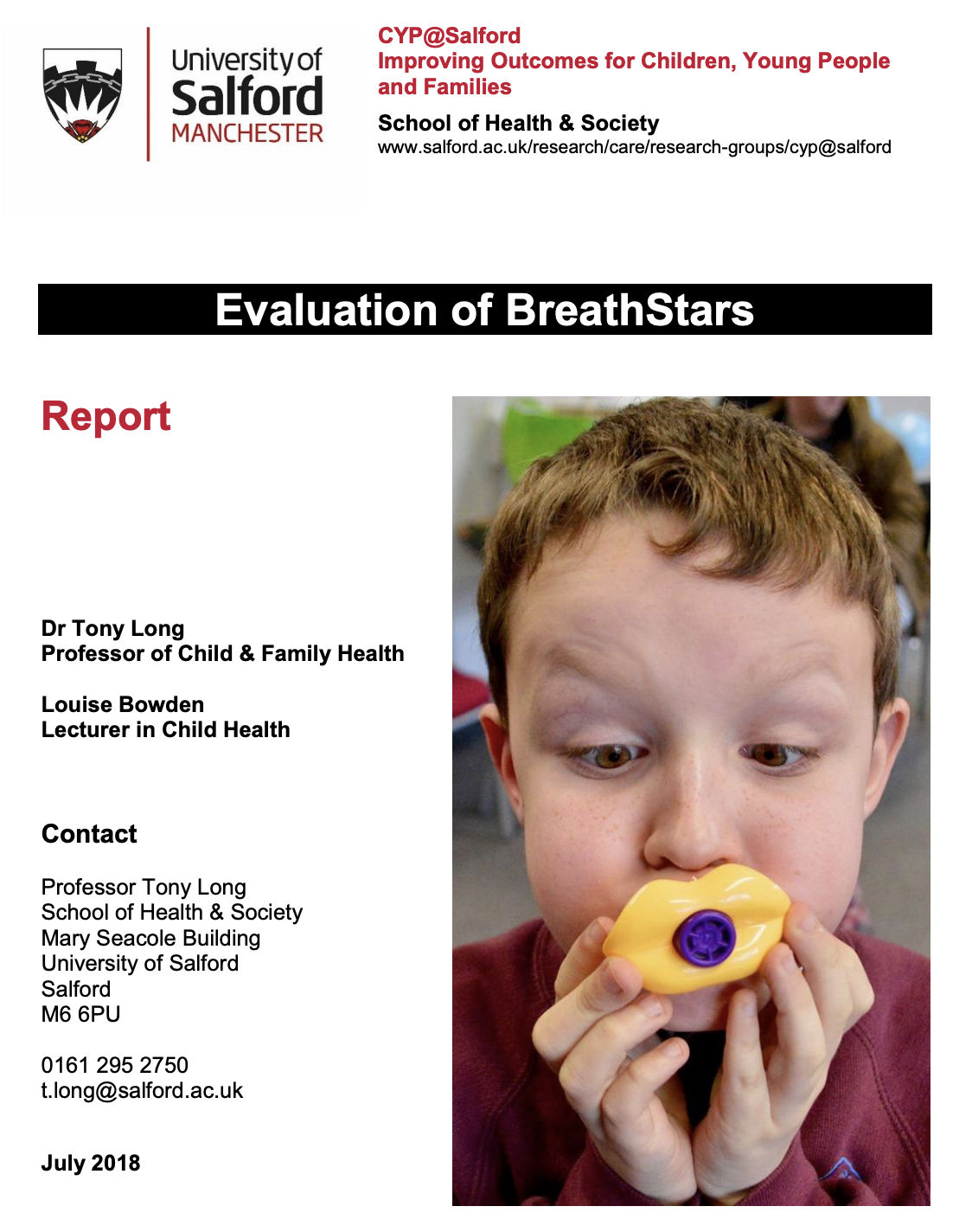Asthma is a big problem in Salford, with almost one child a day attending Salford Royal’s accident and emergency department because of it. BreathStars is an experimental project originally funded by Salford Clinical Commissioning Group (NHS) and the Big Lottery Fund. It tests if singing helps the breathing of children with asthma.
It is a partnership approach between Unlimited Potential, based in Salford, an innovation organisation that works alongside communities and an independent Queen's Nurse called Heather Henry, who herself has asthma. We have engaged a musical therapist called Martha Thompson to help us, with musical advice, help and support from The Hallé.
We are combining our clinical, musical and social innovation knowledge to test and produce a quality assured learning programme.
History
The evidence for singing for lung health for children with asthma is equivocal. We started working together on asthma in Eccles, on another CCG-funded project called Eccles Together in Health, which was about inviting groups of children with asthma and their families to an ‘asthma party’ where they learnt about asthma in fun ways.
Here we met a nine-year-old girl who sang regularly and her grandmother said that her asthma had improved as a result. So we applied for more funding from the Lottery and the CCG in Salford to try out some singing for lung health and we called it BreathStars.
For nine months in 2017/18, between four and six families, each with a child with asthma, got together and sang for an hour each week in Little Hulton Library in Salford. We’d never done anything like this before so we listened and took advice from community leaders and changed things when they didn't work. We reported back both face to face and through social media. We got lots of great feedback.
Results so far
We asked the University of Salford to do an independent report on our work. They said
• It was quite hard to recruit and retain busy families
• Families enjoyed it so much that they sometimes forgot that it was about asthma.
• Children, siblings and parents noticed that children’s asthma was better controlled: they were using reliever inhalers less, they coughed less and slept better.
• Families noticed improvements in behaviour, confidence, self-esteem and mood in their children
• Brothers and sisters without asthma got to understand asthma better and were more likely to help and support their siblings.
• Families saw the potential for children to learn how to help themselves and others with asthma in the community.’
Helping each other
Because asthma and other lung diseases are so common we think every child and adult should know things like how to use an inhaler correctly, so they can help each other. We think that ‘it takes a village to raise a child with asthma’, because everywhere that child goes people want to know how to help them.
But asthma knowledge is sometimes seen as ‘too medical’ and it can switch children and adults off. So, alongside the singing,
we use songs and stories to try to make it fun, easy and memorable.
We are now working with a music organisation in Morecambe and a primary school in Salford to further test and develop standard music and asthma education competencies to share with others, using a cascade model: train the trainer.
You can read the full report here

